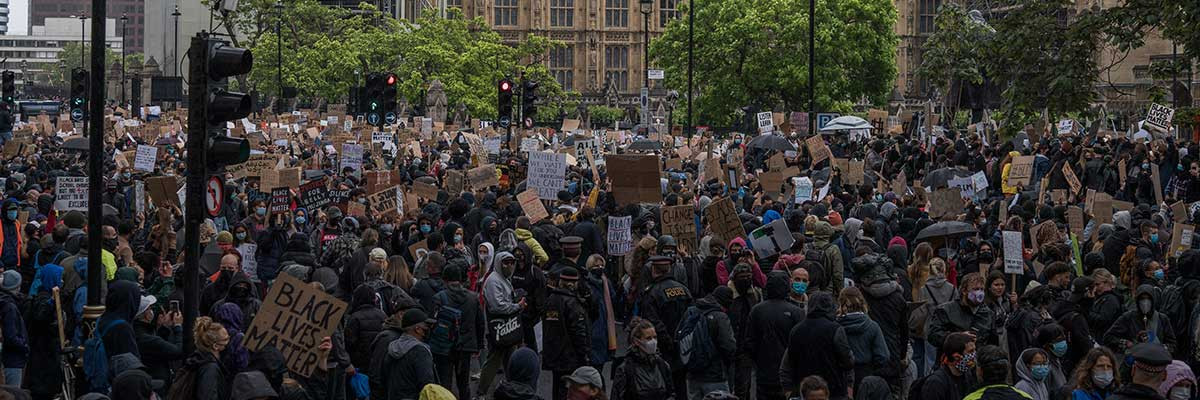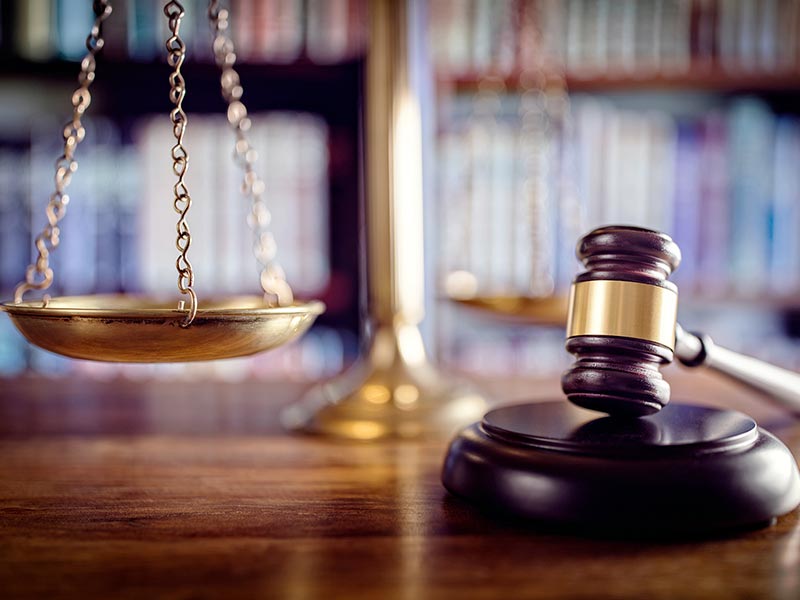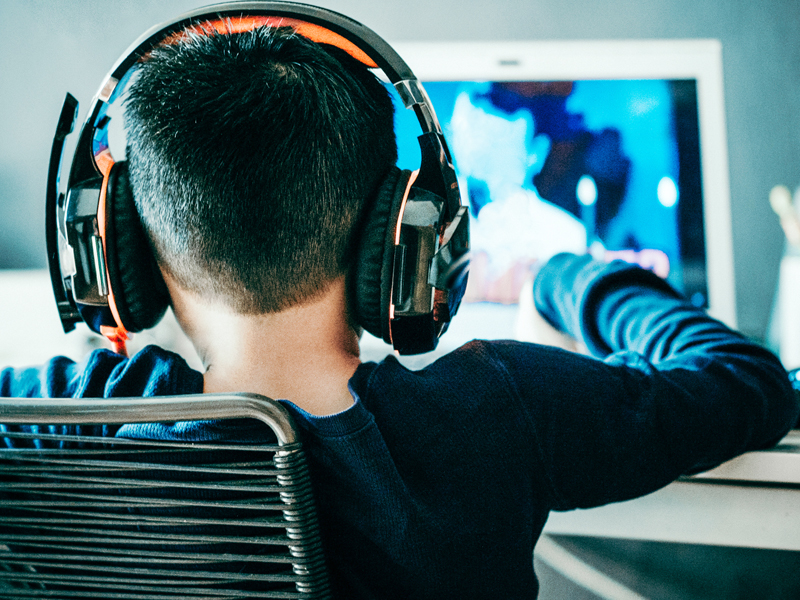
Authors
-
Kelly Scott
Former Manager, Human Rights, BSR
It has been almost two months since the tragic killing of George Floyd at the hands of four police officers in the United States. The public outcry has sparked an unprecedented wave of support for Black Lives Matter (BLM) from all facets of society, including business. A movement still touted as an organization of domestic terrorism by some voices from the political right in the United States is now gaining momentum globally as people coalesce around the call for an end to racial injustice.
This is not just a domestic issue confined to the United States. This is a global human rights imperative.
I am a Jamaican woman who is painfully aware of history and the connection between business and human rights. Businesses profited from the transatlantic slave trade and over 400 years of slavery that stole lives and decimated Black families and communities in the Americas. It is one of the sentinel business and human rights cases, and the enduring legacy of slavery sheds light on the racism and prejudice that existed then and now, albeit in more subtle forms.
Representation in the Business and Human Rights (BHR) Movement
As a Black professional in the business and human rights community who has worked in the US, UK, Kenya and now in Hong Kong, I take this moment to reflect on the role of the business and human rights community in tackling racism and discrimination. Why have we not engaged on these issues in a more robust and meaningful way? I ask this question particularly of BHR organizations based in countries in the Americas and Europe still dealing with the legacy of Atlantic slavery.
Are we doing enough to break down barriers, raise voices of the most vulnerable and marginalized, and tackle diversity and inclusion issues, not just in our work with business but in our own organizations?
In a field that works very hard to hold businesses accountable for their most pressing human rights violations, I’ve noted some hesitation in addressing racial injustice as a BHR issue. The response has often been: "Race is a sensitive issue," "There are more important issues in the world to focus on," or "These issues are only confined to the United States." My colleagues have been predominantly white and middle class, and this becomes deeply personal for people of colour, who should be heard and have their experiences validated. This leads me to ask: Are we doing enough to break down barriers, raise voices of the most vulnerable and marginalized, and tackle diversity and inclusion issues, not just in our work with business but in our own organizations?
Are we doing enough as a field to be self-reflective and have those uncomfortable conversations about race and privilege that are often avoided?
Tackling Racism Head-on in Our Work
Take the example of the progress that the BHR community has made over the past few years on taking action to highlight and address human rights issues in mega-sporting events. The plight of migrant workers in the Gulf who often risk their lives and live in deplorable conditions to construct stadiums has rightly brought many stakeholders to the table to tackle this and many other serious issues. But there is a noticeable absence within the BHR community when it comes to addressing the issue of racism in football and in sports writ large. Sport is after all a big business in which Black people are well represented but often lack any real power or influence. There are very few Black football managers, and the boardrooms of most national football leagues and even UEFA itself are almost exclusively white men. In the wake of George Floyd’s murder, the NFL reversed its controversial ban on players “taking the knee” during the national anthem—a stance first popularized by Colin Kaepernick in protest to the conditions Black Americans experience across the US—issuing a public apology and offering public support. Yet it seems to be all too convenient as the world faces its reckoning with race relations.
We rightly focus on the labor practices of people in the developing world who make the clothes for people in the developed markets, but there is limited focus on Black people working in essential services and on the frontline who also need advocates making strong calls to action.
Another cogent example would be the disproportionate impacts of the COVID-19 pandemic on Black people in the US and UK. The pandemic is exposing the systemic racial inequalities and disparities in health, education, and employment. Many Black people are dying in shockingly high numbers as they occupy a high proportion of frontline and essential worker positions increasing the risk of exposure to the disease and job losses. This is exacerbated by co-morbidity factors including obesity, hypertension, and diabetes, further creating complications and leading to poorer health outcomes.
Why is the BHR community largely silent on these issues?
We rightly focus on the labor practices of people in the developing world who make the clothes for people in the developed markets, but there is limited focus on Black people working in essential services and on the frontline who also need advocates making strong calls to action. Acknowledging that these too are BHR issues while working with business to address the unique circumstances and needs of vulnerable communities disproportionally impacted by COVID-19 will help to address the ingrained disparities that prevent many from realizing their basic human rights.
Tackling Racism Head-on in Our Organizations
While it is positive to see some organizations within this space issue public statements and show support for Black Lives Matter, this cannot be reduced to a hashtag or public relations opportunity. I know that there are no overnight solutions but not being racist is not enough. The real work starts with being anti-racist—a conscious lifelong dedication to fight and dismantle oppressive systems.
Proof will be in the actions, so what should be done?
Taking action can be reflected in not only embedding diversity and inclusion in our own organizations but also diversifying our own perspectives, research, and thought leadership. The BHR community should work harder to tackle the systems and structures that reinforce racism—which is as much an issue of governance as it is of ownership and power.
Here are a few ways in which we can help in our own work where possible:
- Look beyond the obvious to acknowledge "the unspoken," such as unconscious bias, implicit bias, and microaggressions in the workplace.
- Call for more board and leadership diversity in our own organizations and within the business community.
- Apply more scrutiny to lobbying efforts made in businesses that are antithetical to diversity.
- Call attention to products and services that reinforce racial stereotypes and bias, including the development and use of artificial intelligence.
- Scrutinize investment decisions made by companies and shareholders in systems that disproportionately impact vulnerable groups such as investments in private prisons that contribute to the problem of the mass incarceration of Black people, for example.
- Work towards incorporating diversity, equity, and inclusion in corporate benchmarks to assess and improve company performance on how they are tackling racial injustice by integrating the voices of rightsholders.
The BHR community should work harder to tackle the systems and structures that reinforce racism—which is as much an issue of governance as it is of ownership and power.
It is the responsibility of the business and human rights community to listen, learn, reflect, and act. As we begin to think of ways we can tackle racial injustice, spark dialogue, and ensure that we are not being complicit and part of the problem, I’d like to see a BHR field with less silence and apathy and more anti-racist action. Standing against racism starts with acknowledging the problem and working together to correct historical injustices as a first step. Stating unequivocally that Black Lives Matter while creating spaces for uncomfortable conversations and amplifying voices of the most vulnerable will be another critical step in the right direction.
We do not want more performance activism and tokenism—fostering authentic dialogue is the key to creating real change.
Originally appeared on IHRB.
Topics
Let’s talk about how BSR can help you to transform your business and achieve your sustainability goals.







